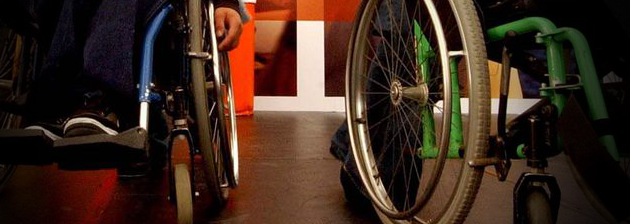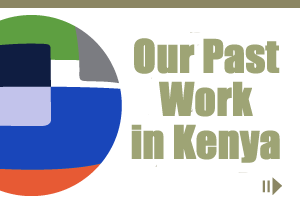By Ida Jooste, Country Director, Internews in Kenya.
People with disabilities are not being reached by HIV programs, Leonard Cheshire of the Disability and Inclusive Development Centre has said at the close of the AIDS 2012 Conference in Washington DC. The organization is calling for more inclusive sexual and reproductive health education and services, as social marginalization and risk of sexual violence are of increased concern for millions of people with disabilities.
Chesire’s sentiments echo those expressed at a media roundtable held at Internews in Kenya in June this year. The Kenya AIDS NGO Consortium (KANCO) had requested a discussion with journalists, because the organization found that the reproductive health rights of those with mental health disabilities was not well understood, and not well represented in the media. KANCO says the questions people typically ask include: are people with disabilities sexually active? do they have menses and can they get pregnant? This ignorance, says KANCO, exposes mentally and intellectually handicapped people to sexual abuse and HIV – resulting in unplanned pregnancies, which risk the lives of mothers and unborn babies.
“They don’t know about their menstrual cycle, they don’t know about safe days and they don’t know much about contraceptives either. We have to guide them to help them avoid falling into the many pitfalls they are exposed to”, Fatuma Wangare, told the group of more than 30 journalists at the discussion. Fatuma is the mother of 25-year-old Jane Akinyi, who has a mental health disability.
Also in June, Internews and the Kenya National Blood and Transfusion Services hosted a
roundtable to consider stories which would raise public understanding of the reasons why people are reluctant to donate blood – a concern, because 75 000 units of blood is needed each year to help save lives.
Dan Omullo, Director of the Society for the Disabled, donates blood at least three times a year. But Omullo knows some Kenyans would refuse to take his blood if they knew it was from a disabled person. A common myth is that those who receive blood from a person with disabilities would be afflicted with the disability.
Regular donors like Omullo must be celebrated is because they have defied myths and fears and volunteered to save lives, said Dr. Rex Mpanzanje, World Health Organization representative in Kenya. “Cultural beliefs exist in all societies”, he said, “but new information and advances in science should motivate people to abandon myths.”
In a recent interview, Professor Nora Groce, Director of the Leonard Cheshire Disability and Inclusive Development Centre at University College London, noted that a growing body of research reveals that men and women with disabilities are as likely as all other members of society to be sexually active, or to use alcohol or drugs (additional risk factors for becoming HIV positive). More than a dozen stories dispelling cultural myths about the disabled and their health behaviors were published in the Kenyan media, following the discussion events – steps towards addressing this knowledge gap.




